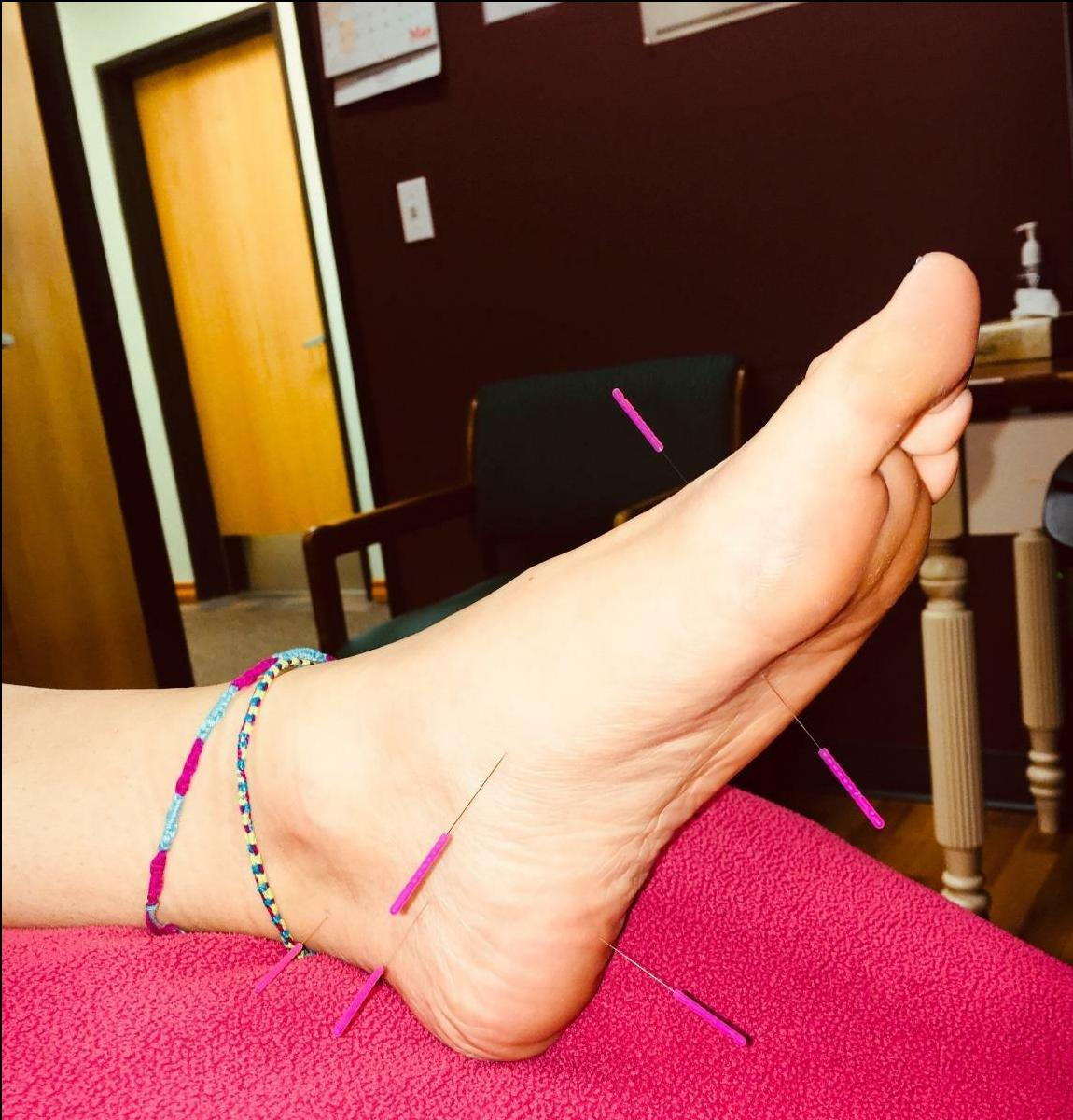
Taking your first steps out of bed each morning shouldn't feel as if you had sleepwalked through an ally of broken glass during the night. Unfortunately, those who suffer from the condition plantar fasciitis experience this on a daily basis. Pain from this condition can be described as sharpness or stabbing that's felt on the bottom of the heel or bottom mid-foot area. The plantar fascia are ligaments located at the base of the heel bone and extends to attach to each toe on the bottom of the foot. These ligaments support the arch of your foot and help you walk. Too much pressure or repetitive stress on your feet can damage or tear the plantar fascia. When these injuries occur, the plantar fascia becomes inflamed and irritated resulting in heel pain.
This condition develops gradually over time and is usually worse when taking your first steps out of bed in the morning. The pain can also occur if you've been sitting or lying down for a while. Plantar fasciitis is most commonly seen in individuals who are runners, are overweight, have an occupation that requires prolonged standing or walking, wearing improper shoes or arch support, and those with musculoskeletal misalignment issues. If symptoms of plantar fasciitis go untreated it can cause chronic heel pain, change the way you walk, and could ultimately injure or impair function in your back, hips, legs, and knees.
How can acupuncture help with this condition? Acupuncture can actually help relieve pain in multiple ways. Insertion of acupuncture needles causes a local effect on nerve endings releasing neuropeptides, which relieve or eliminate your perception of pain. More research shows that a substance called adenosine is released during acupuncture to promote blood flow to the area and has a potent pain-relieving and anti-inflammatory effect. (1) In addition, local cells known as fibroblasts, are stimulated by acupuncture to promote tissue healing in the area. (2)
Research has also proven that acupuncture stimulates the release of endorphins, the body's natural painkillers, to induce states of relaxation and pain relief. Studies regarding the use of acupuncture and brain activity show that following treatment there is less activity in brain regions associated with pain perception and increased activity in areas that regulate our response to pain. (3)
In conclusion, studies on acupuncture for plantar fasciitis have shown high levels of effectiveness for pain reduction and help improve overall function of the affected area. If you are suffering from symptoms of plantar fasciitis, please consider acupuncture as an effective treatment option and contact our office so we can help you get back on your feet!
References:
1. Goldman N, Chen M, Fujita T, et al. Adenosine A1 receptors mediate local anti-nococeptive effects of acupucnture. Nat Neurosci. 2010:13(7):883-888. doi:10.1038/nn.2562.
2. Langevin, H. M., Bouffard, N. A., Churchill, D. L., & Badger, G. J. (2007),. Connective Tissue Fibroblast Response to Acupuncture: Does-Depemdemt Effect of Bidirectional Needle Rotation. The Journal of Alternative and Complementary Medicine, 13(3), 355-360. doi.org/10.1089/acm.2007.6351
3. Huang W, Pach D, Napadow V, et al. Characterizing acupuncture stimuli using brain imaging with FMRI-a systematic review and meta-analysis of the literature. PLoS ONE; 2012:7(4):e32960. doi:10.1371/journal.pone.0032960.